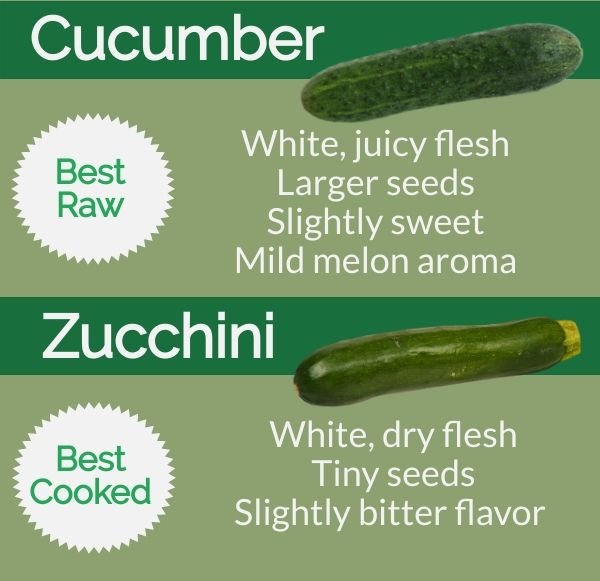Introduction to Non-Nightshade Vegetables:
Non-nightshade vegetables offer a diverse range of nutrients without the potential inflammatory compounds found in nightshade plants like tomatoes and peppers and much more.👇👇👇
Write me a comprehensive guide on non-nightshade vegetables, their benefits, and how to incorporate them into your diet.
Non-nightshade vegetables are a diverse group of plant-based foods that do not belong to the Solanaceae family, which includes popular vegetables like tomatoes, potatoes, peppers, and eggplants. While these nightshade vegetables are staples in many diets, some people experience sensitivity to them due to alkaloids, which are natural chemicals found in these plants.
For those looking to reduce or eliminate nightshades from their meals, understanding the vast array of alternative vegetables is key.
Non-nightshade vegetables come in many varieties, offering a broad spectrum of flavours, nutrients, and health benefits. These include leafy greens like spinach, kale, and Swiss chard, root vegetables like carrots and beets, as well as cruciferous vegetables like broccoli, cauliflower, and cabbage. Each type brings unique nutritional content, providing essential vitamins, minerals, and antioxidants that support overall health.
For instance, cruciferous vegetables are rich in glucosinolates, compounds that may help protect against cancer. Leafy greens, on the other hand, are powerhouses of vitamin K, which is crucial for bone health and blood clotting.Incorporating non-nightshade vegetables into your diet is easier than you might think.
These vegetables can be roasted, steamed, sautéed, or eaten raw, depending on your preference. They pair well with a variety of herbs and spices, adding depth and flavour to meals without the need for nightshades. For example, if you’re looking for a substitute for tomatoes in sauces, try using roasted butternut squash or carrots, which provide a natural sweetness and thickness.

Zucchini or cucumbers can be used in salads or stir-fries instead of bell peppers, offering a similar crunch without triggering any sensitivities.In addition to their culinary versatility, non-nightshade vegetables are generally well-tolerated by most people and are less likely to cause inflammatory reactions in those with autoimmune conditions.
For individuals managing conditions like arthritis or inflammatory bowel disease, reducing nightshade consumption can potentially help alleviate symptoms such as joint pain, digestive issues, or skin problems. Non-nightshade vegetables are also a great option for anyone looking to diversify their diet and explore new flavours, textures, and cooking techniques.
Overall, the wide array of non-nightshade vegetables available makes it easy to enjoy nutrient-dense meals that are both flavorful and beneficial to your health. By experimenting with different combinations and cooking methods, you can create delicious, wholesome dishes that support your well-being, whether you need to avoid nightshades or are simply looking to expand your vegetable repertoire.

Here are some of the key benefits of consuming non-nightshade vegetables:
The benefits of non-nightshade vegetables are numerous, and they contribute significantly to overall health and well-being. These vegetables are nutrient-dense, packed with vitamins, minerals, fibre, and antioxidants, making them a valuable addition to any diet.
1. Anti-inflammatory Properties:
One of the primary reasons people avoid nightshades is due to the alkaloids that can trigger inflammation, particularly in individuals with autoimmune conditions such as arthritis or inflammatory bowel disease. Non-nightshade vegetables, on the other hand, are less likely to cause inflammatory responses. Vegetables like spinach, kale, broccoli, and beets are known for their anti-inflammatory properties, which can help reduce chronic inflammation and alleviate symptoms like joint pain and swelling.
2. Rich in Nutrients:
Non-nightshade vegetables are loaded with essential vitamins and minerals that support overall health. Leafy greens like spinach and Swiss chard are high in vitamin K, which is crucial for bone health and blood clotting. Cruciferous vegetables like broccoli and cabbage provide vitamin C, which boosts the immune system, and folate, important for cell repair and growth. Root vegetables such as carrots and sweet potatoes are rich in beta-carotene, which the body converts into vitamin A, essential for eye health and immune function.
3. Improved Digestive Health:
The fibre content in non-nightshade vegetables plays a significant role in promoting healthy digestion. Vegetables like carrots, cucumbers, and zucchini are excellent sources of dietary fibre, which helps regulate bowel movements, prevent constipation, and maintain a healthy gut microbiome. A fibre-rich diet also supports cardiovascular health by helping to lower cholesterol levels and control blood sugar levels.
4. Cancer-Fighting Properties:
Several non-nightshade vegetables, particularly cruciferous vegetables like broccoli, cauliflower, and Brussels sprouts, contain compounds known as glucosinolates. These compounds have been shown to have cancer-fighting properties, helping the body detoxify and reduce the risk of certain cancers, including breast, lung, and colon cancer. The antioxidants present in many non-nightshade vegetables also protect cells from oxidative stress, further reducing the risk of cancer development.
5. Supports Heart Health:
Non-nightshade vegetables contribute to heart health in several ways. The high levels of potassium found in vegetables like spinach, beets, and Swiss chard help regulate blood pressure by balancing sodium levels in the body. Additionally, the antioxidants and anti-inflammatory compounds in these vegetables reduce the risk of cardiovascular diseases such as heart attack and stroke by preventing damage to blood vessels and lowering cholesterol levels.
6. Weight Management:
Incorporating non-nightshade vegetables into your diet is an excellent strategy for weight management. These vegetables are low in calories and high in fibre, helping you feel fuller for longer without consuming excess calories. They can be included in salads, soups, stews, or as a side dish, making it easier to stick to a balanced, nutrient-dense diet that supports weight loss or maintenance.
7. Skin Health:
The vitamins and antioxidants in non-nightshade vegetables, particularly vitamins A, C, and E, are beneficial for maintaining healthy skin. Beta-carotene from carrots and sweet potatoes promotes skin cell regeneration and can protect against UV damage. Vitamin C, found in broccoli and Brussels sprouts, supports collagen production, which is vital for maintaining skin elasticity and reducing the signs of ageing.
8. Bone Health:
Leafy greens such as kale, spinach, and Swiss chard are particularly high in calcium and vitamin K, both of which are essential for maintaining strong, healthy bones. Calcium helps build and maintain bone density, while vitamin K is critical for bone formation and regulating calcium in the body. Consuming these vegetables can help reduce the risk of osteoporosis and bone fractures.In conclusion, non-nightshade vegetables provide a wide range of health benefits that can enhance your overall well-being.

Excellent sources:
They are excellent sources of vitamins, minerals, fibre, and antioxidants that support various aspects of health, from reducing inflammation to improving heart and digestive health. Whether you are sensitive to nightshades or simply looking to diversify your diet, non-nightshade vegetables are a nutritious and versatile option.
While non-nightshade vegetables are generally considered healthy and beneficial, there are a few potential disadvantages to be aware of. These downsides usually depend on individual circumstances, dietary needs, or preferences.
Below are some of the disadvantages associated with non-nightshade vegetables:
1. Nutrient Gaps:
Eliminating nightshade vegetables from your diet may lead to missing out on certain nutrients that are abundant in those vegetables. For example, tomatoes are rich in lycopene, a powerful antioxidant associated with heart health and cancer prevention,
which is harder to find in non-nightshade alternatives. Potatoes, a nightshade, are a good source of potassium and vitamin C. If non-nightshade vegetables are not carefully chosen to replace these nutrients, there could be gaps in nutrition.
2. Limited Variety:
For those who enjoy the taste and texture of nightshades, removing them from the diet can reduce the variety and flavour options. Nightshades like tomatoes, peppers, and eggplants offer a unique flavour profile that can be difficult to replicate.
Although non-nightshade vegetables can be versatile, some people find it challenging to replace certain flavours, such as the umami and sweetness of roasted tomatoes or the spiciness of hot peppers.
3. Digestive Issues with Certain Vegetables:
While non-nightshade vegetables are generally good for digestion due to their fibre content, some people may experience discomfort from specific types. For example, cruciferous vegetables like broccoli, cauliflower, and Brussels sprouts can cause bloating and gas in some individuals because they contain raffinose, a type of carbohydrate that is harder to digest.
Additionally, high-fibre vegetables can sometimes lead to digestive discomfort if consumed in excess, especially in individuals with sensitive digestive systems or conditions like irritable bowel syndrome (IBS).
4. Potential for Overconsumption of Oxalates:
Some non-nightshade vegetables, particularly leafy greens like spinach and Swiss chard, are high in oxalates, compounds that can contribute to the formation of kidney stones in susceptible individuals. While oxalate-rich vegetables are typically safe for most people, those prone to kidney stones or with a history of the condition may need to monitor their intake of these vegetables or choose low-oxalate alternatives.
5. Allergies or Sensitivities:
Although nightshade sensitivity is a common concern, some individuals may have allergies or sensitivities to non-nightshade vegetables as well. For example, people can be allergic to carrots, celery, or certain leafy greens, which can cause symptoms such as itching, swelling, or gastrointestinal discomfort. These sensitivities, while less common, can still impact dietary choices.
6. Preparation Challenges:
Some non-nightshade vegetables require more time and effort to prepare than their nightshade counterparts. For instance, root vegetables like beets or parsnips often require peeling, roasting, or steaming to bring out their flavour and texture, which can be time-consuming. In contrast, vegetables like tomatoes or bell peppers can be easily eaten raw or lightly cooked. This added preparation time might be inconvenient for individuals with busy schedules.
7. Taste Preferences:
For those accustomed to the distinct flavours of nightshades, non-nightshade vegetables might not fully satisfy their palate. Nightshades like tomatoes and peppers bring brightness, acidity, and heat to many dishes, which some people may miss when relying solely on non-nightshade alternatives. Adjusting to the different taste profiles of non-nightshade vegetables might take time, especially for those who enjoy spicy, tangy, or savoury dishes that typically use nightshades.
8. Availability and Cost:
Depending on your location and season, non-nightshade vegetables might not be as readily available as common nightshade varieties. Some non-nightshade options, such as specialty root vegetables or exotic leafy greens, may also be more expensive than widely available tomatoes, potatoes, and bell peppers.
This could limit access to affordable non-nightshade alternatives for some individuals.In conclusion, while non-nightshade vegetables offer numerous health benefits, there are some potential drawbacks, particularly in terms of nutrient balance, digestive sensitivities, and taste preferences. It’s essential to be mindful of these disadvantages when making dietary changes to ensure you’re maintaining a balanced and enjoyable eating plan.
Conclusions:
, while non-nightshade vegetables provide valuable nutrients and benefits for many, they also come with some limitations and considerations. For those with nightshade sensitivities or autoimmune concerns, these vegetables can offer a safe and nutritious alternative. However, potential drawbacks—such as limited flavor variety, digestive sensitivities, nutrient gaps, and higher costs—mean that a balanced approach is essential.
Being mindful of these factors and incorporating a diverse range of non-nightshade vegetables can help create a well-rounded diet that meets both health needs and taste preferences. Ultimately, understanding the advantages and disadvantages allows for better-informed choices, making it easier to enjoy the many benefits non-nightshade vegetables have to offer.
you must watch 👁️👁️ this article 👇👇👇





